Rebecca Lynn Seto Memorial Scholarship
Rebecca Lynn Seto was an amazing young lady with a huge heart and a wacky sense of humor. Despite being non-verbal and having a very rare syndrome that no one, including education and medical staff, had ever encountered before, she touched the lives of many. Family was most important to Becky. She was happiest at family gatherings, where singing "Happy Birthday" would excite her immensely. She was an active, lifelong member of St. John’s Lutheran Church, where she loved attending services and socializing with her church family, classmates, friends, and even strangers. Her contagious smile and laughter lit up rooms and stadiums, and she was ecstatic at her first live game watching her beloved NY Giants. Her smile and laughter were present during many of the activities she loved, such as riding roller coasters, dancing, kayaking, drumming, swimming, and bike riding.
Becky and her family benefited greatly from the help of special educators, physical therapists, speech therapists, occupational therapists, and social workers. The staff who got the most from Rebecca and whom she enjoyed working with the most were those who took the time to understand her quirky personality, her likes, and dislikes. Most importantly, they figured out how to communicate with her even though she couldn’t talk. They used this understanding to build successful programming and goals for her. Over her lifetime, from early intervention through high school, teams who worked with Becky were innovative and engaged her, making her excited to go to school and work with them.
Sadly, Rebecca passed away on May 3, 2024, at the age of just thirty-one. Becky’s impact on people will continue through the Rebecca Lynn Seto Memorial Scholarship, benefiting those studying special education, occupational therapy, physical therapy, speech therapy, or social work.
Any undergraduate or graduate student with at least a 3.0 GPA who is studying these fields and intending on working in special education, pre-k through 12th grade, may apply for this scholarship opportunity.
To apply, please tell us how you would go about working with a child like Rebecca. What methods would you use to reach and teach them? What part do you feel that family plays in the education and progress of a disabled child? Please confirm your intent to work in special education, pre-k through 12th grade. Do you have any experience working with special needs children? To help us better understand your needs, please share any information about your college finances that you are comfortable disclosing, such as funding sources, financial challenges, and any student loan debt.
Tell us how you would go about working with a child like Rebecca. What methods would you use to reach and teach them? What part do you feel that family plays in the education and progress of a disabled child? Please confirm your intent to work in special education, pre-k through 12th grade. Do you have any experience working with special needs children? To help us better understand your needs, please share any information about your college finances that you are comfortable disclosing, such as funding sources, financial challenges, and any student loan debt.
Winners and Finalists
December 2025



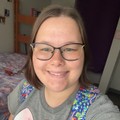

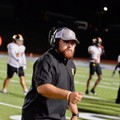
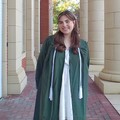
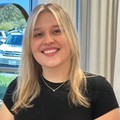

July 2025
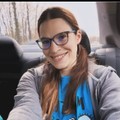
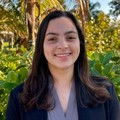
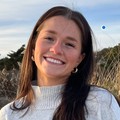

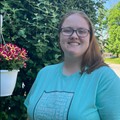

Winning Applications




Explore All Kinds of Scholarships for All Kinds of Students
FAQ
The application deadline is Nov 22, 2025. Winners will be announced on Dec 15, 2025.
Your privacy is a top priority on the Bold.org platform, and you can find our privacy policy in full here. You may opt out of communications from Bold.org at any time, and unless we’ve first notified you and gotten your consent, you’ll never receive communication from any third parties related to personal information you give us.
Award amounts per winner are designated by the donor. Check the award amount for a detailed breakdown.
The winner will be publicly announced on Dec 15, 2025. Prior to the announcement date, we may contact finalists with additional questions about their application. We will work with donors to review all applications according to the scholarship criteria. Winners will be chosen based on the merit of their application.
Award checks will be sent to the financial aid office of the winner's academic institution in their name to be applied to their tuition, and in the name of their institution (depending on the school's requirements). If the award is for a qualified educational non-tuition expense, we will work with the winner directly to distribute the award and make sure it goes towards qualified expenses.
Before we award the scholarship, the winner will be required to confirm their academic enrollment status. Depending on the circumstances, verification of Student ID and/or their most recent transcript will be required.
If you have any questions about this scholarship or the Bold.org platform, just email contact@bold.org and we’ll get back to you as quickly as we can.
Yes. The terms and conditions for this scholarship can be found here.